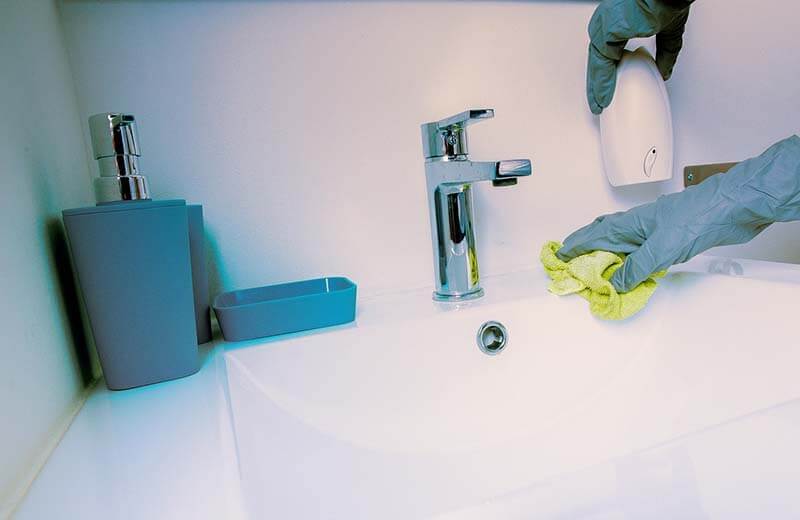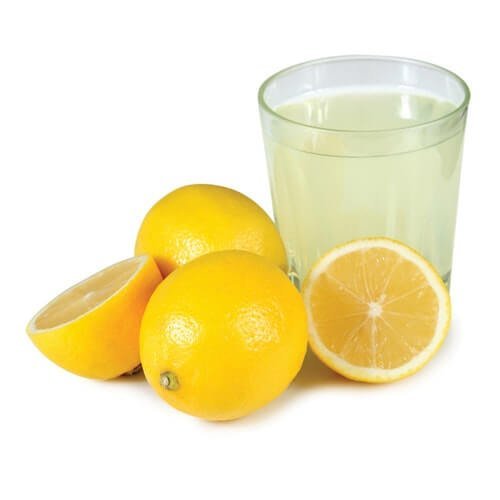
Our editors independently research, select, and recommend the best products. Some of these may be affiliate based, meaning we earn a small commission (at no additional cost to you) if items are purchased.
Limescale is a hard crust which is white in color and forms inside various plumbing systems and components. It is caused when hard water deposits in the said plumbing components and devices.
Hard water is so called due to its composition of plenty of dissolved minerals. It is highly corrosive and ghastly to taste.
Limescale is potentially harmful to the plumbing systems as well as the vessels that contain water in the typical household. It blocks pipes, reduces the pressure of water, necessitates frequent repairs and maintenance, irritates sensitive skin, and diminishes the efficacy of the detergents, to mention but a few.
It is for these reasons that these twin issues have to be mitigated as much as possible. The precise method or means of eliminating these two issues largely depend on where exactly they occur, as you shall see.
We have identified, and are going to explore the top six tips on how to remove limescale to implement right now to remove it in the proceeding discussions.
1. Consider Purchasing An Electronic Water Softener
Use a electronic water softener to get rid of the dissolved minerals from the water. This piece of equipment provides a more permanent solution to the twin issues of hard water and lime scales.
This is the trait that uniquely distinguishes it from the others of its kind that are temporal. It eliminates these dissolved minerals by use of a magnetic field rather than other chemicals.
It is as such environmentally-friendly, cheaper, and safer than most other approaches. It also brings along the benefits of prolonging the lifespan of the various containers in use. This is because it poses almost no damage at all to these containers.
2. Utilize A Non-Precipitating Softener Tablet
In case the limescale occurs in your washing machine, a non-precipitating softener tablet can be of great help to you. Its ‘non-precipitating’ nature simply means it does not solidify and leave behind any residues.
It softens the water by neutralizing the calcium minerals that are found in the hard water.
This enables the detergents to work unhindered besides disposing of them safely and conveniently. It also prevents the limescale from blocking the various parts and components of your washing machine.
This enables it to function more efficiently. The tablets are available in major online auction sites and leading retail outlets.
3. Add A Chemical Inhibitor
As stated in the introductory segment, the approach used largely depends on where exactly the issue arises. Chemical inhibitors are mainly suited for the central heating systems.
In case the limescale piles up in the said devices or components of the plumbing system, you are urged to use the chemical inhibitor.
Add it to the said plumbing component. Be sure that the inhibitor is specially designed for the central heating systems. You definitely want to accrue the highest possible outcomes.
Be sparing in your usage of this chemical. That is because excessive amounts may often compromise the quality of the water and render it unsafe for human use.
4. Make Good Use Of The Magnetic Descaler
For ridding the pipes of the accumulated debris and chemicals, a magnetic descaler is strongly recommended.
This is basically a special kind of magnetic field that is designed and contrasted with the aim of eliminating dissolved minerals from the hard water. It is also called the anti-scale magnetic treatment (AMT).
Make good use of this magnetic descaler (see it on Amazon) for the sake of your pipes. Clamp it preferably on the outside of your pipework.
This arrangement alters the unique traits of the minerals in your water. This destroys their ability to stick to the pipes and form the limescale.
5. Employ White Vinegar And Water
Just in case the limescale settles on your kettles or other household cutlery, your best bet is on the white vinegar and water.
In this case, you have to mix a half cup of white vinegar with a half cup of water. Boil the solution and pour it into the kitchen appliance. Leave it to cool overnight.
The limescale shall rinse away the following morning. The frequency of this activity together with the quantity of chemicals used depends on the hardness of the water and the number of chemicals.
You may have to repeat it every quite often until you obtain the desired outcomes.
6. Clean Surfaces Using Malt Vinegar Or Lemon Juice
Lastly, for dishes, tap fixtures, silverware, and metallic cups, malt vinegar, and lemon juice are the preferred chemicals to use.

Clean these utensils using the chemicals above. These chemicals contain acids which dissolve the limescale whenever they get into contact with each other.
These substances are however less effective. This stems from the fact that their effects are temporal.
Moreover, they are only suitable for smaller appliances as it may be tedious to use for larger appliances. Too much acid can also corrode the utensils and wear them out completely.
Beware of this as you plan to use the chemicals.
Conclusion
Needless to say, the six tips we have identified and explained above are not all that may possibly be of help.
There are indeed innumerable others which we inevitably had to leave out owing to space and time limitations. It is in your best interest to carry on from where we have left.
This way, you will get to know more about how to beat these two issues. We wish you well in your future endeavors.
Recommended Reading
8 Easy Ways Of How To Protect Your Hair From Hard Water And Prevent The Damage
Are you having problems with your hair? If you have been using hard water on your hair, it just might be the cause. If you want to keep a healthy hair...
The Positive And Negative Effects Of Hard Water And The Potential Health Impacts
Soft water has a salty taste, and this makes it not favorable for drinking. Hard water has its positive and negative sides.
7 Tips On How to Get Rid of Hard Water Stains. Make Your Life Easier Using These Tricks.
Is hard water causes you problems? Stains, spots? Learn how you can get rid of hard water and make your life easier with these simple little tricks.
What Exactly Is Water Hardness And How Bad Is It For You
There is no evidence that hard water is harmful to human health, and most studies have failed to show any clear linkages for or against the health effects..


